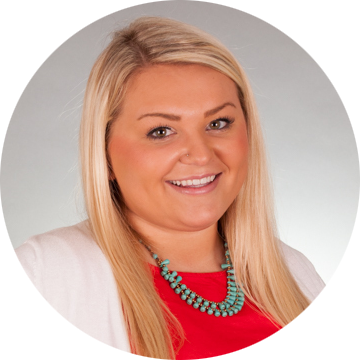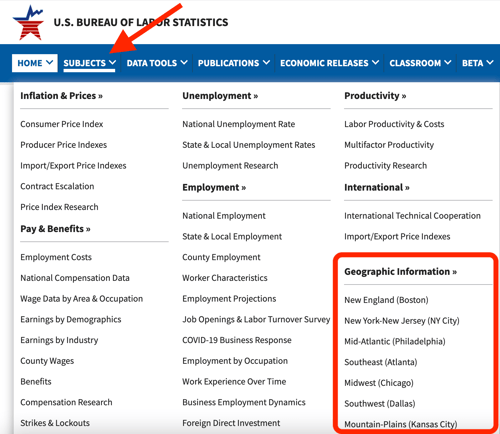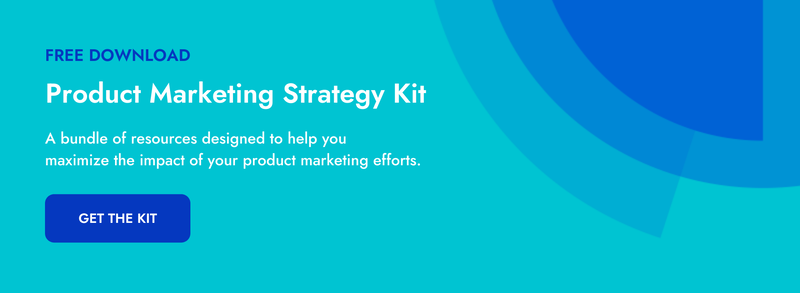Crayon's Product Marketing Spotlight is a video interview series where we chat with product marketers to get a glimpse into their careers and gain unique insight into product marketing strategy. In this edition of the Product Marketing Spotlight Series, we shine the light on Farhan Manjiyani of Rev.
Video interview transcription:
MC: Hi, my name is Mackenzie Colcord and I'm the host of Crayon's Product Marketing Spotlight Series. Today I have joining me Farhan Manjiyani, the technical product marketing manager at Rev. Thanks again for taking the time.
FM: Happy to be here. Thanks for inviting me.
MC: Absolutely. So just to kick this off and give our listeners background, what does Rev do?
FM: Yeah, fantastic first question. Let's set some context. Rev is a speech-to-text marketplace. That's really how we started about 10 years ago. So we're building a marketplace of freelancers who are transcribing, captioning, subtitling in real-time. And then looking at organizations that really have this speech text need to give back those transcripts to. So you can think of the Netflixes of the world, right? I had this whole show, how can I get kind of human-level quality as close to a hundred percent as I can get on my transcripts? If you've ever seen something online that has poor transcription, that is the problem that we solve.
MC: That's awesome. And I'm sure, especially with the remote world that we're living in and with COVID, I'm sure it's taken off even more.
FM: Yeah. Especially that live aspect. In the last two years, as we have more and more online (and so much of this), live transcription has really taken off and that's where we've put in a lot of investment ourselves. And well, mostly from an AI perspective as well. So we also have a developer platform for those looking to build voice and video applications, but at the heart of what you do is speech text.
MC: Yeah, absolutely. That's great. And I noticed that you were named a top product marketing influencer by the Product Marketing Alliance. So congrats on that.
FM: Thank you so much.
MC: Very exciting.
FM: Crazy Tuesday morning to see my name on that list. A lot of folks on that list, I consider personal mentors and friends that helped me get into this space. So to be recognized next to them is a dream come true.
MC: That's awesome. Congratulations.
FM: Thank you.
MC: So tell me a little bit about your career path. What was your first job and what else kind of happened along the way to bring you to where you are now?
FM: Yeah, great question. I started my product marketing career actually in sales. I think most product marketers start in some discipline in marketing and transition over. I had no idea anything about marketing. I was a sales guy, if you will. Mostly early-stage startups. First sales hire, starting the sales function and what I started to realize was what I loved most about sales was taking the guesswork out of sales, which I slowly came to realize was actually product marketing.
FM: Funny story is I used to drop these profiles. Because I thought I had cracked the code to sales. I was like, oh, if I talk to someone from the technology background and this way, versus someone who works in nonprofits this way, if I talk about our company and our product differently, I have better results. This is the best thing and I started to create what I call these profiles. And then one day the director of product marketing came knocking on my door. They said, "Hey, I'd love to see the work you did on personas." And I was like, "I don't know what the hell a persona is, but I have these profiles." He's like, "No. Yeah. Well, these are called personas and we have a whole team that does enablement from the entire sales team."
FM: My response was one, that's really awesome. Number two, I'm on the sales team and I had no idea this even existed, let's work together. And long story short, I realized I absolutely loved everything that product marketing does and slowly transitioned in.
MC: Awesome. Did you know about product marketing beforehand or was that totally new to you?
FM: That was my first time. I didn't even realize this is what product marketing is. I was like, if I had to write a job description, I love actually running the training for sales and taking the guesswork out of how to do sales. Well, that's just what managers of sales do. That's what they do all day. Until I realized actually it's product marketing, that's at the heart of this working collaboratively with sales leadership.
MC: Well, that's a perfect segue for my next question. So why do you think the relationship between product marketing and sales is so important?
FM: Good question. Imagine you take a client out to dinner at your favorite restaurant and you know the chef. If you really want to impress the client, ideally you talk to the chef beforehand about what they like and what they don't like. Maybe they have some allergies and it's kind of important to really have that conversation. A poor relationship between product marketing and sales is you just being in the kitchen as a chef saying, "Well, I know food and everything I produce someone will like and someone will eat. If they don't eat it, they can just go somewhere else." Those are the restaurants that don't have super long lines.
FM: But whereas where they really understand that actually every person that that walks into a restaurant is a little different. They have a little bit of different tastes. They like different things. They have different tolerances. And ultimately the person at the table is the one that knows that person the best. And while you may know your craft, which is food, or in this case, product marketing the best, you really need that other side to validate, test in real-time, experiment, learn. Hear things together and teach each other on what good looks like and where you need more feedback and validation. Sales is a team sport at the end of the day and product marketing and marketing overall is part of that same team.
MC: Absolutely. Totally agree. And obviously, competition is growing in many markets. I'm sure yours as well. As a product marketer, have you been incorporating competitive intelligence into your role a lot more just to keep a good pace of what's going on in the industry?
FM: Yeah, absolutely. And Crayon is a huge part of that. I think the tooling in which product marketers... The unfortunate reality is we're constantly juggling a lot of different priorities. By design, product marketing is sitting in between product marketing, sales and success, and the overall goal is to democratize access to the customer and the market. How do we connect the dots between what we're building and what people are willing to pay money for, quite frankly? So we can actually build a successful business and competitors are a major component of that.
FM: Not because you want to just copy everything your competitors are doing, but the first step is understanding what competitors are doing and then figuring out is this something we should be reacting to? And if so, how? And as product marketers, you are responsible for everything and you don't own really anything in terms of actual priorities. And so most of what you're doing is trying to influence different pieces of the business.
FM: And so in addition to launching new products, in addition to enabling sales and customer-facing and revenue teams overall, the third kind of big bucket is competitive. Do I understand where we fit in, where we should be reacting, how we can be proactive versus just reactive? You see a headline in the news and people freak out. If you're doing your job well as a product marketer, you should be the one to really contextualize is this important or no? Is this something that we should really be thinking about? And if so, who should really be thinking about this?
FM: Maybe it's the partnerships, maybe it's the office of the CEO thinking about mergers and acquisitions. Maybe it's how we're messaging and positioning. The product marketer needs to shift because maybe you're just like your competitor's message. You're saying the exact same thing. A fun trick I always try to use is you take your messaging and you remove your name and put a blank there. And if you can put in your competitor's name and that message still makes sense, your messaging and positioning is probably not very good.
FM: And an important piece of that is understanding what are your competitors' messages and how are they changing? Where are they experimenting? Where are they recruiting from? And then taking that information as part of broader insights that you're informing customer-facing teams and other stakeholders. And again, what is signal, and what is noise?
MC: Now for my favorite question, what does it mean to you to compete like you mean it?
FM: Compete like you mean it. To me, that means back up your investment in competitive, which is to say if you really believe that this is something that is important to informing your go-to-market strategy, to informing your position in the market, you got to back that up. And I think that starts with the CEO's office, that should be reflected in the marketing budget, and most specifically in product marketing's time and priorities.
FM: With competitive, it's not a one-person or one team's job, but everybody's doing some element of competitive, and the organizations that do it really well, create a really nice framework and a program where all the information is centralized, easy to understand. And everyone who is looking for competitive information can get kind of insights on how it's going to be helpful for them and what they should just broadly ignore.
FM: That's the number one question that everyone has. And so if you're trying to compete like you mean it, don't just outsource all your competitive win-loss interviews that you do once a year to some agency and you just get a report and say you have a competitive program. Invest the time to have a dedicated resource, to look at the landscape, invest in tooling, invest in filtering your searches to get that signal to noise ratio, and invest in the feedback loop of we're doing this research, is it what people are looking for? Is my competitive information actually being adopted and used? And if so, for what? What's missing in what I'm delivering overall to the organization, and how can we be improving this?
FM: That is a company-wide conversation that perhaps starts with product marketing or marketing at large, but not something that can stay siloed there.
MC: Absolutely. Well, thanks again for your time Farhan. Terrific answers and I know our listeners will have a lot of great takeaways, so it was a pleasure.
FM: Thank you so much. Pleasure to be here. Happy Crayon customer. If anyone has evaluated and has some questions, please feel free to reach out.
MC: Awesome. Thanks again.

Related Blog Posts
Popular Posts
-
 How to Create a Competitive Matrix (Step-by-Step Guide With Examples + Free Templates)
How to Create a Competitive Matrix (Step-by-Step Guide With Examples + Free Templates)
-
 The 8 Free Market Research Tools and Resources You Need to Know
The 8 Free Market Research Tools and Resources You Need to Know
-
 Sales Battlecards 101: How to Help Your Sellers Leave the Competition In the Dust
Sales Battlecards 101: How to Help Your Sellers Leave the Competition In the Dust
-
 6 Competitive Advantage Examples From the Real World
6 Competitive Advantage Examples From the Real World
-
 How to Measure Product Launch Success: 12 KPIs You Should Be Tracking
How to Measure Product Launch Success: 12 KPIs You Should Be Tracking



%20(1).png?width=500&name=CI%20Strategy-CI%20Audit%20(1)%20(1).png)
